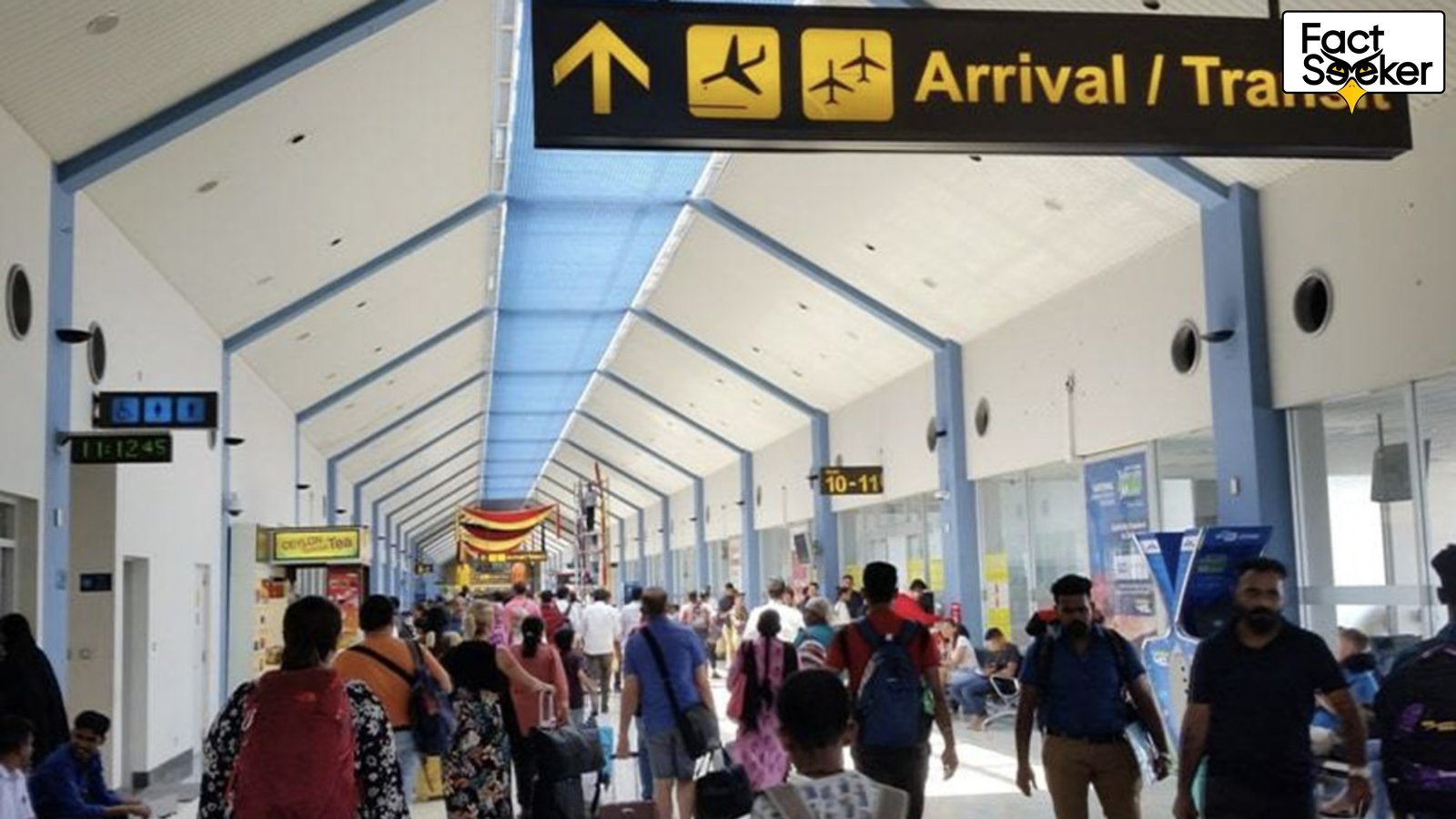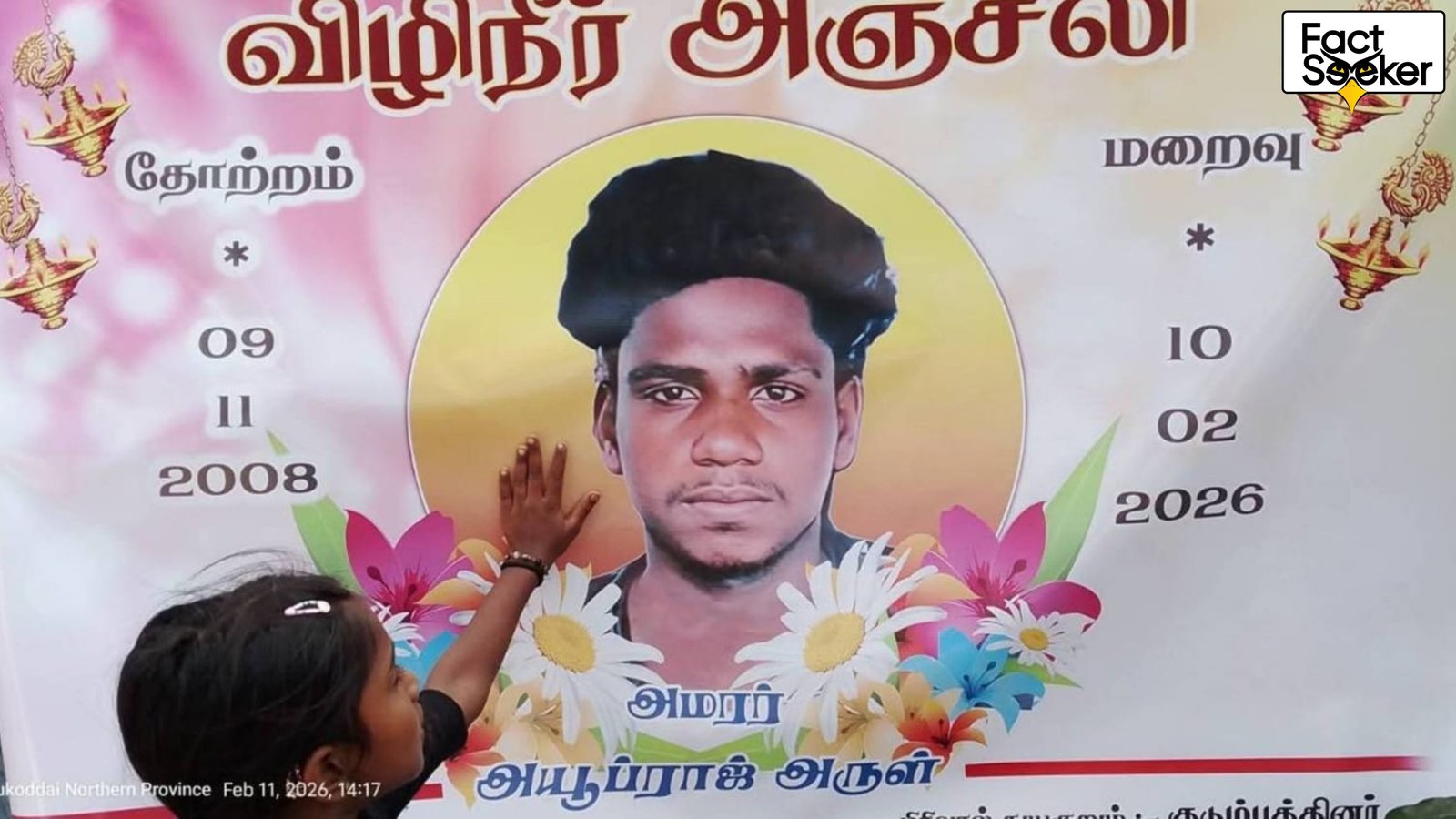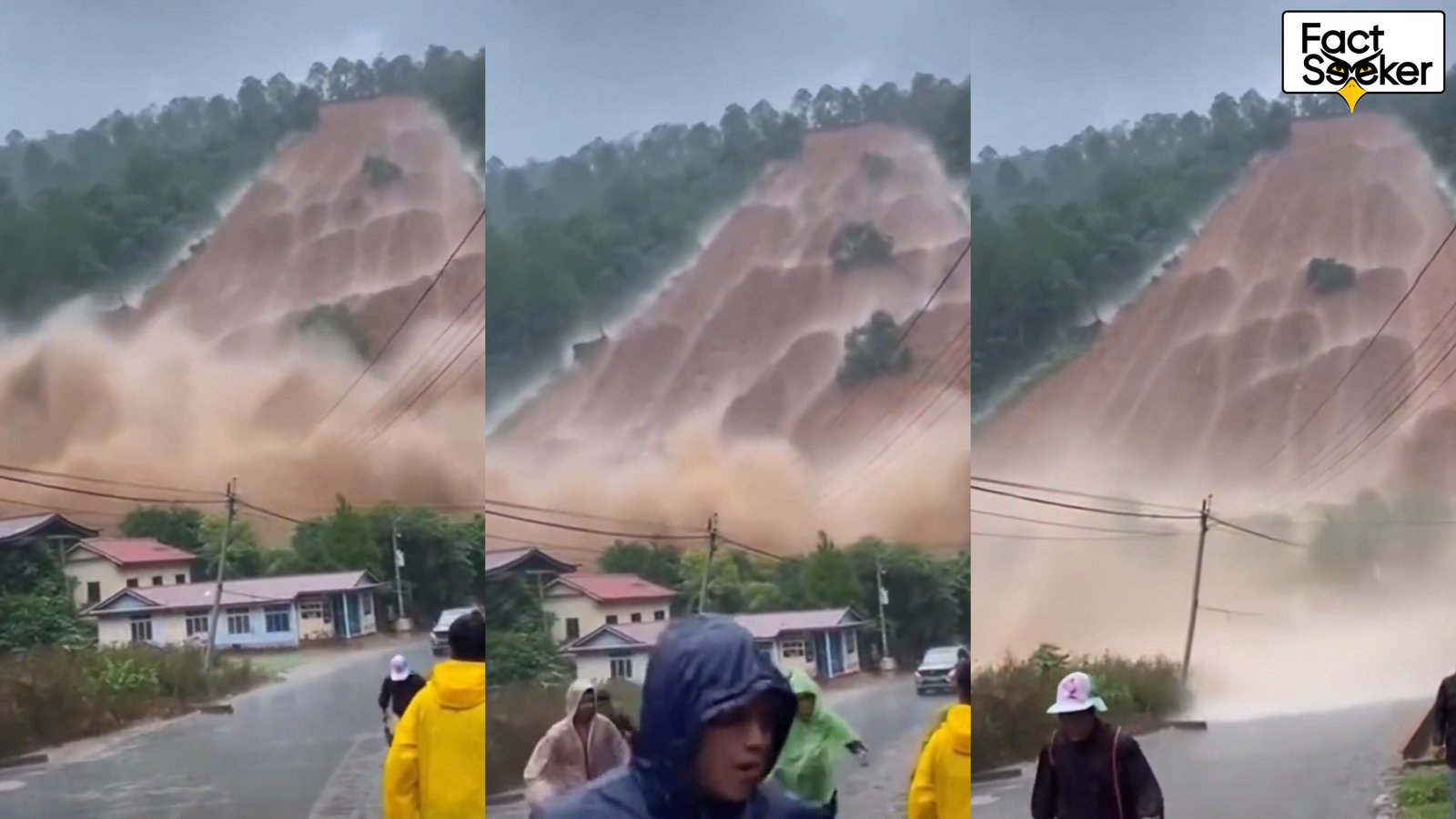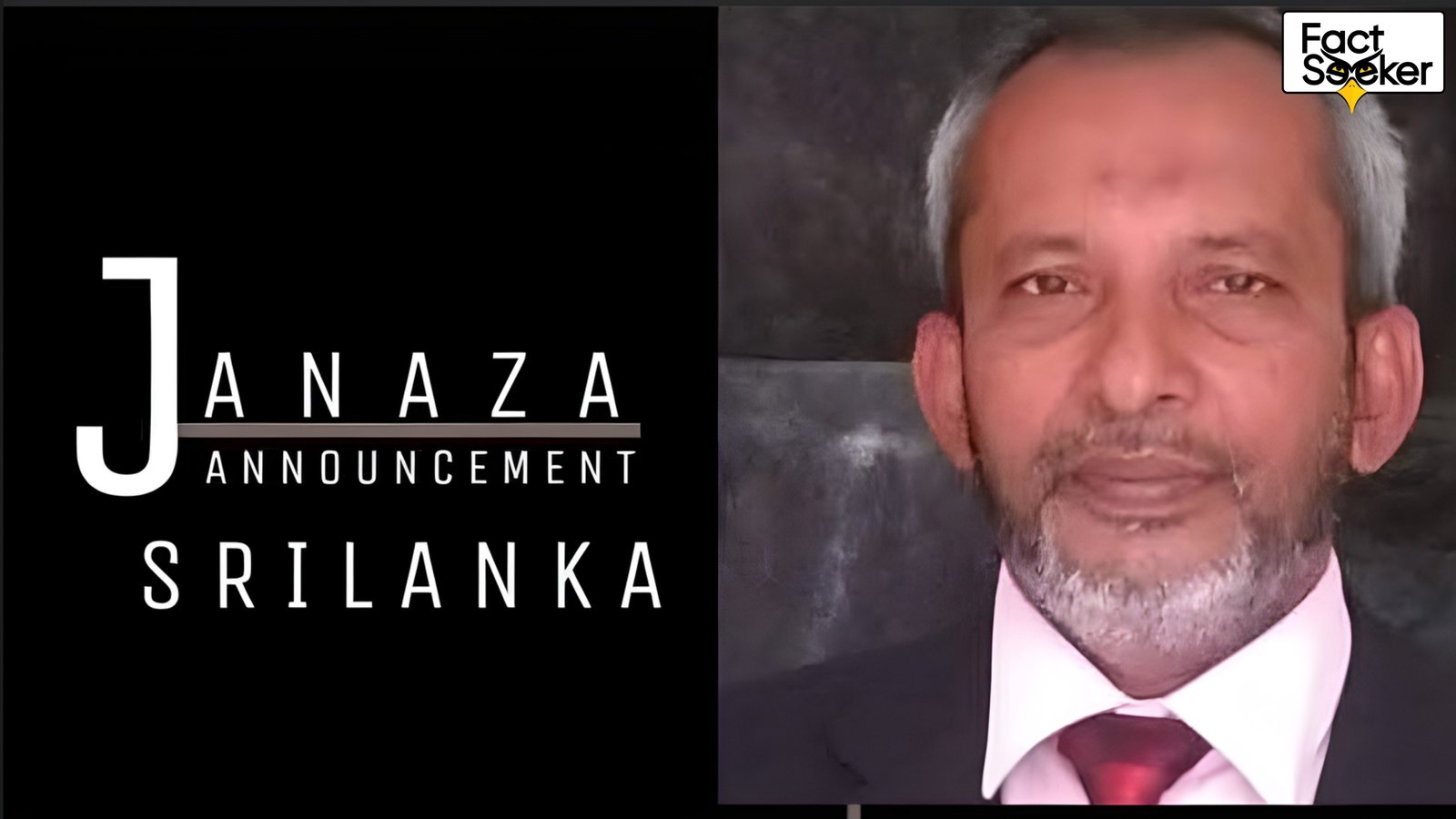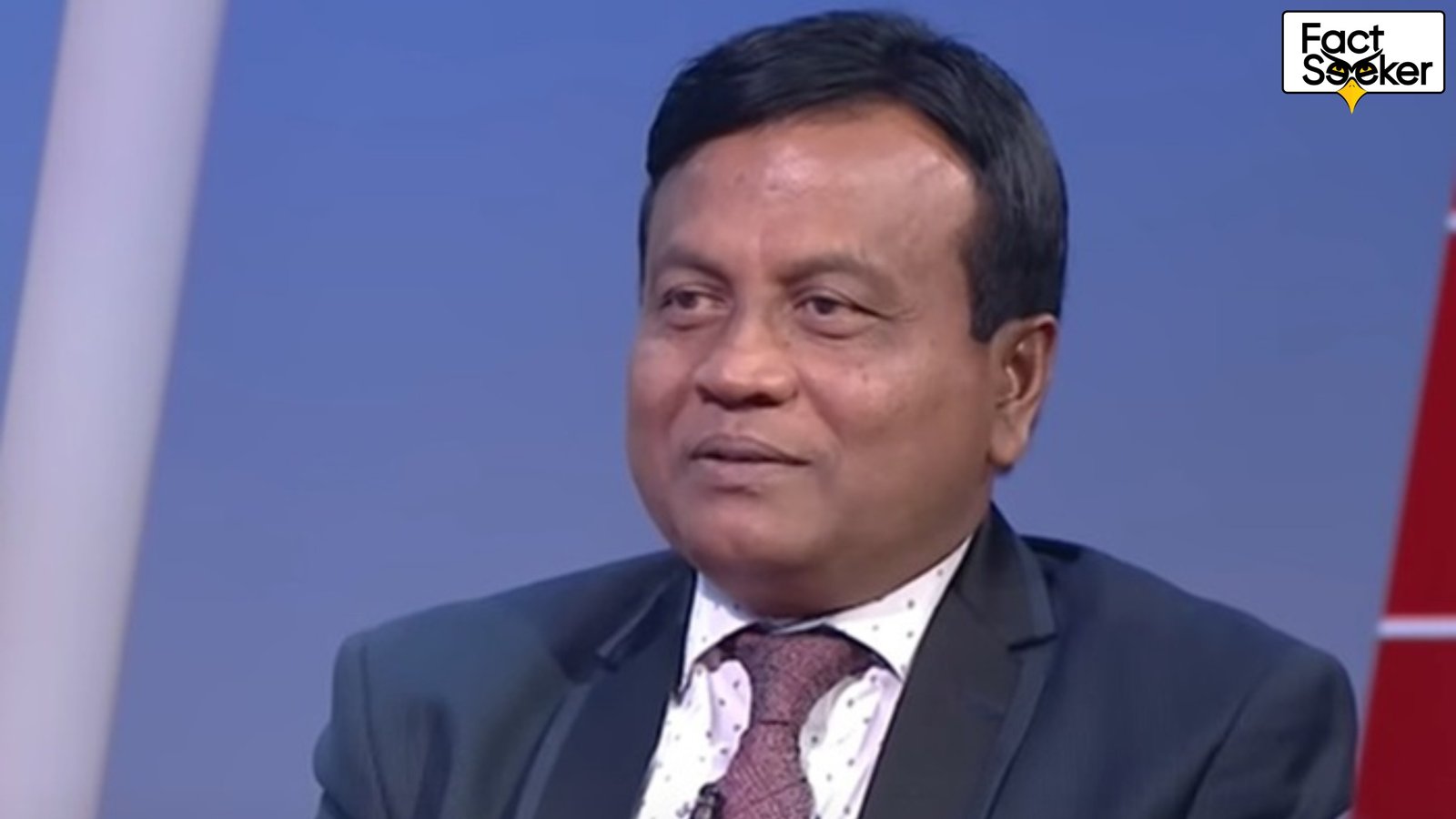Fake Message Being Shared as “Emergency Temperature Warning”

The Sri Lanka Meteorological Department has stated that the public should not be misled by false information currently circulating on social media and other media regarding the upcoming weather conditions in the country.
by Anonymous |
April 30, 2025

FactSeeker has identified a viral post titled “Temperature Emergency Alert” that is being widely circulated on WhatsApp and other social media platforms. The message falsely claims that the Meteorological Department has issued a high alert, warning of extreme heat, with temperatures expected to rise between 45°C and 55°C from April 29 to May 12. It advises people to stay indoors during this period and take a range of questionable precautions.
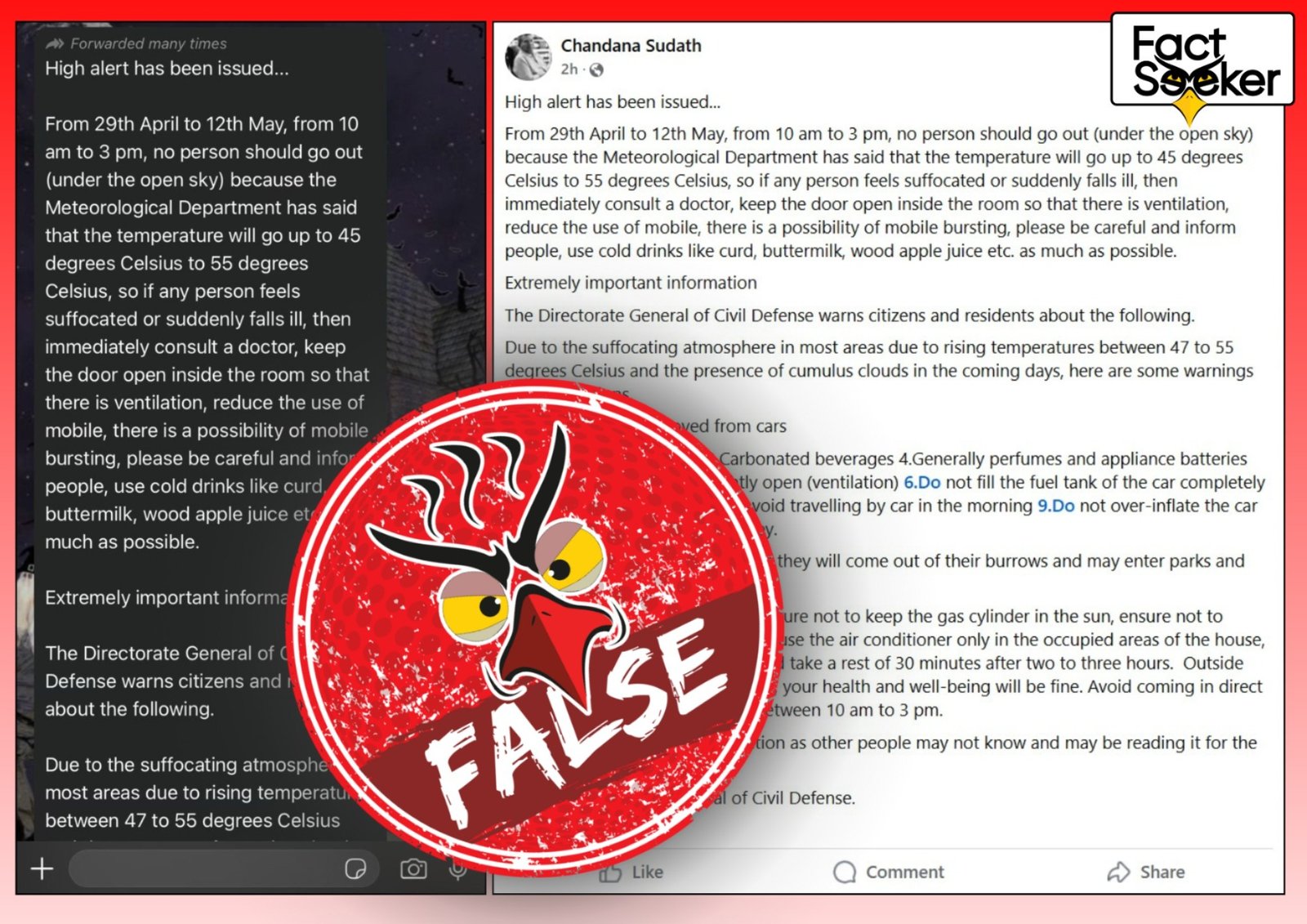
Here is the full text of the fake message:
High alert has been issued…
From 29th April to 12th May, from 10 am to 3 pm, no person should go out (under the open sky) because the Meteorological Department has said that the temperature will go up to 45 degrees Celsius to 55 degrees Celsius.
If any person feels suffocated or suddenly falls ill, then immediately consult a doctor. Keep the door open inside the room so that there is ventilation. Reduce the use of mobile phones — there is a possibility of mobile bursting. Please be careful and inform others. Use cold drinks like curd, buttermilk, wood apple juice etc. As much as possible.
Extremely important information:
The Directorate General of Civil Defense warns citizens and residents about the following:
Due to the suffocating atmosphere in most areas and the rising temperatures (47 to 55°C) along with the presence of cumulus clouds in the coming days, here are some warnings and precautions:
These should be removed from cars:
Gas materials
Lighters
Carbonated beverages
Perfume and appliance batteries
Car windows should be slightly open (for ventilation).
Do not fill the fuel tank of the car completely
Fuel the car in the evening
Avoid travelling by car in the morning
Do not over-inflate car tyres, especially during long journeys
Beware of scorpions and snakes as they may come out of their burrows and enter homes and parks seeking cooler areas.
Drink plenty of water and fluids. Do not keep gas cylinders in the sun. Avoid overloading electricity meters. Use air conditioners only in occupied areas of the house and rest for 30 minutes every 2 to 3 hours. If the temperature is 45–47°C outside, set the AC at home to 24–25°C to stay healthy.
Avoid going outside from 10 a.m. to 3 p.m.
Finally, please share this information as others may not know and may be reading it for the first time.
Regarding Directorate General of Civil Defense
FactSeeker’s – Investigation
After reviewing this message, FactSeeker confirms that no such warning has been issued by the Sri Lanka Department of Meteorology or the Ministry of Public Security. While a temperature advisory was released on April 29, it has no connection to this exaggerated and misleading message.
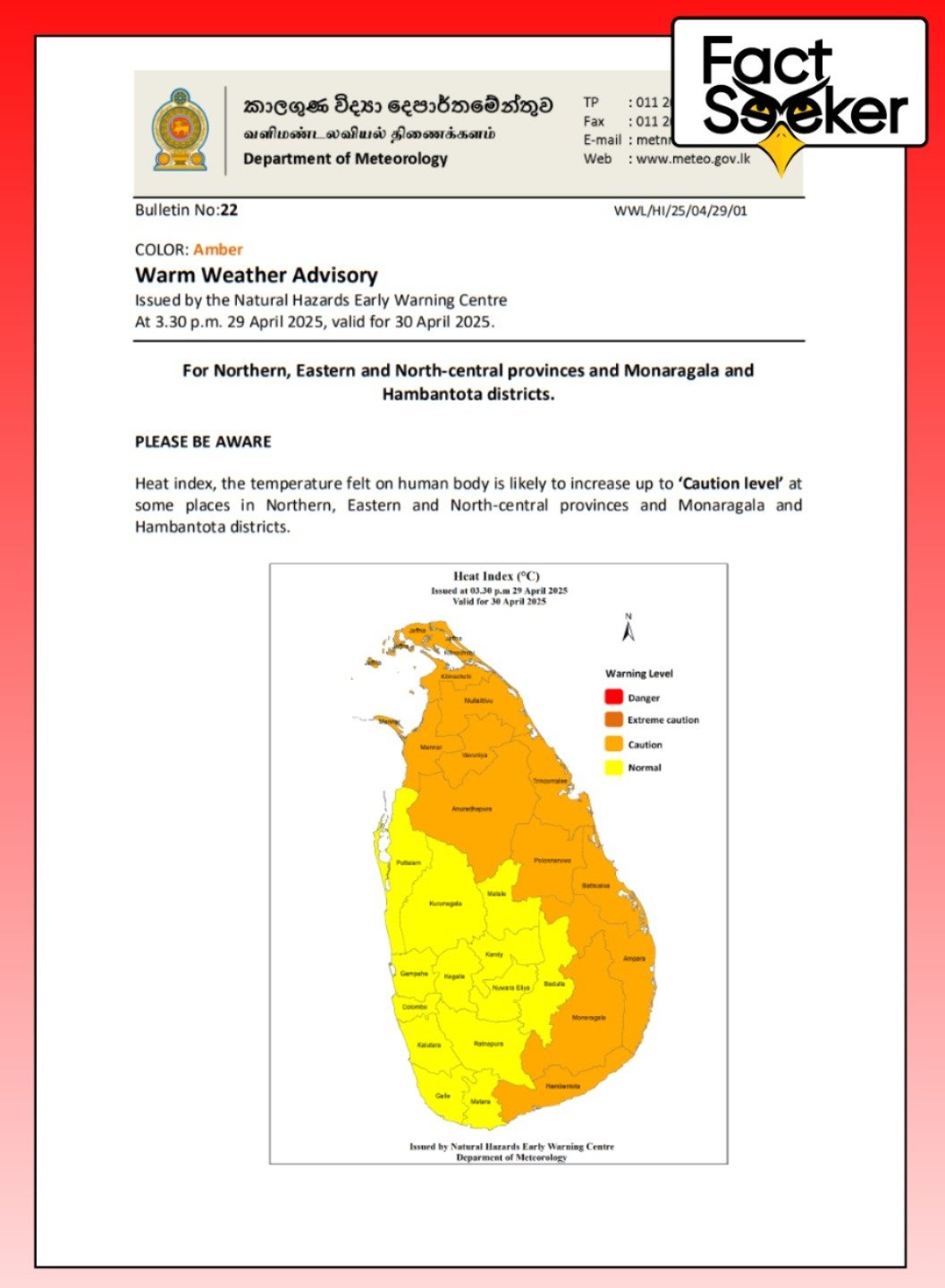
To clarify, FactSeeker contacted Preethika Jayakody, Deputy Director of the Sri Lanka Meteorological Department. She clearly stated that there is no such extreme temperature threat, and the department has not issued any warning as described in the viral message. In fact, the department issued an official media statement addressing the false information.
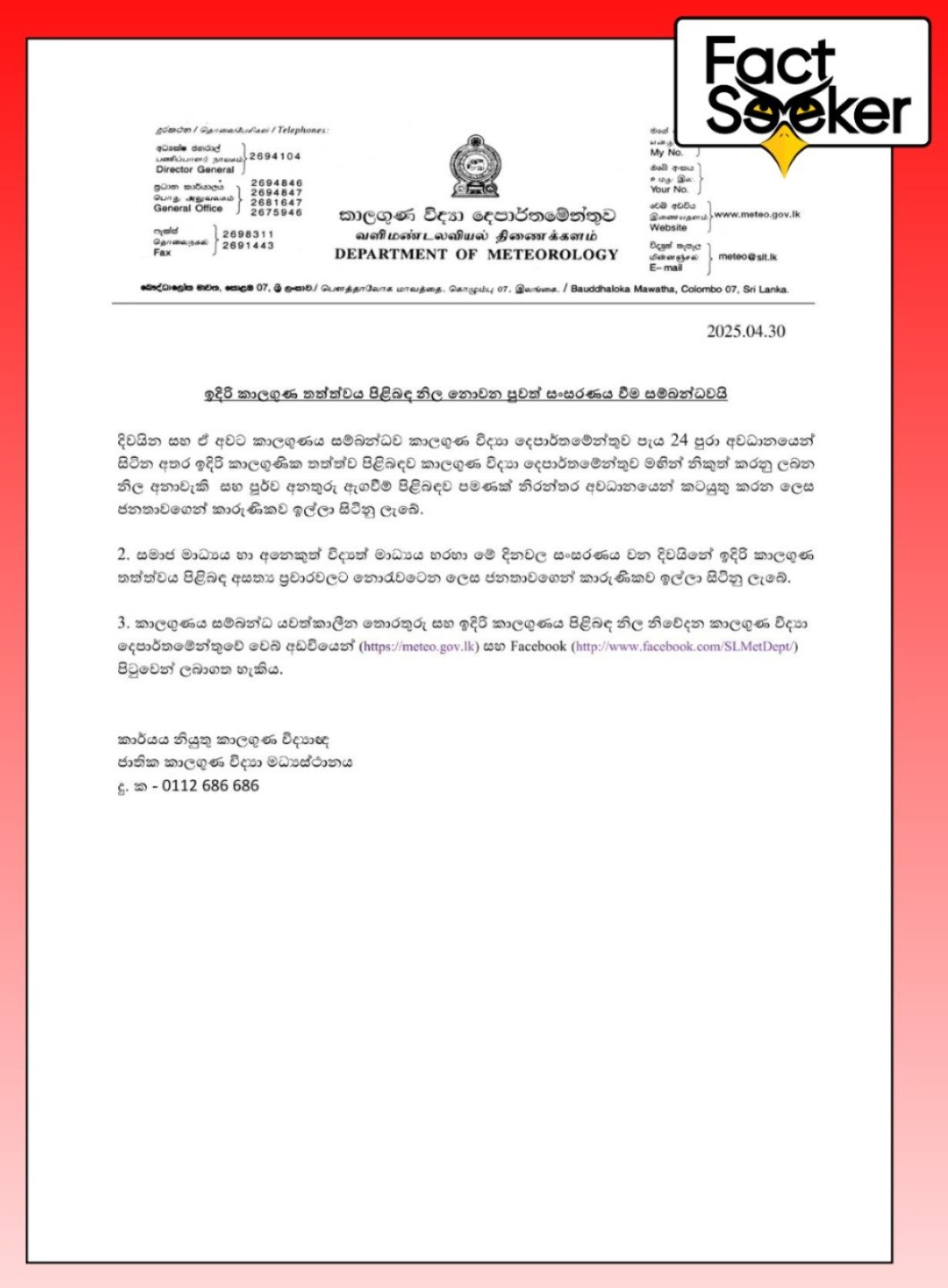
Official Statement from the Department of Meteorology:
“Unofficial reports are circulating regarding the weather conditions expected in the coming days. However, the Department monitors the weather conditions 24 hours a day. The public is requested to continue to pay attention only to official forecasts and warnings issued by the Department.
The public is also requested not to be misled by the false information currently being spread through social media and other platforms regarding weather changes.
The latest official weather information can be found on the Department’s website: https://meteo.gov.lk and Facebook page: http://www.facebook.com/SLMetDept/.”
Same fake message circulated in India previously :
Upon further investigation, it was observed that the same message had been shared in India at various times in the past. However, in those instances, only the dates were altered, while the rest of the content remained the same. Meteorologists in India have also denied the claims, confirming that no such warnings were issued and that the message is false.
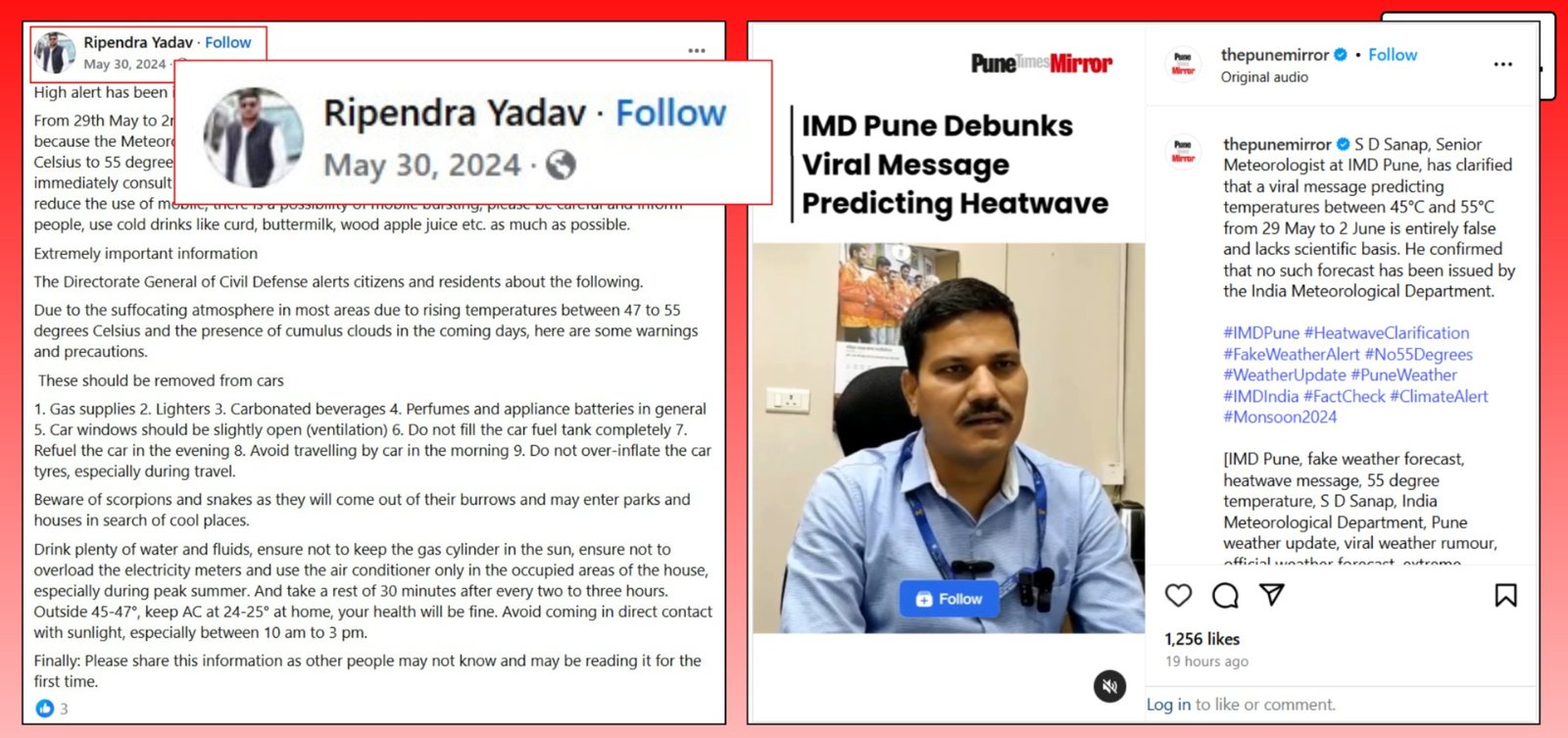
Conclusion
FactSeeker confirms that the message being circulated under the title “Temperature Emergency Warning” is false. It is not backed by any verified authority, and many of its claims are scientifically inaccurate or exaggerated.
